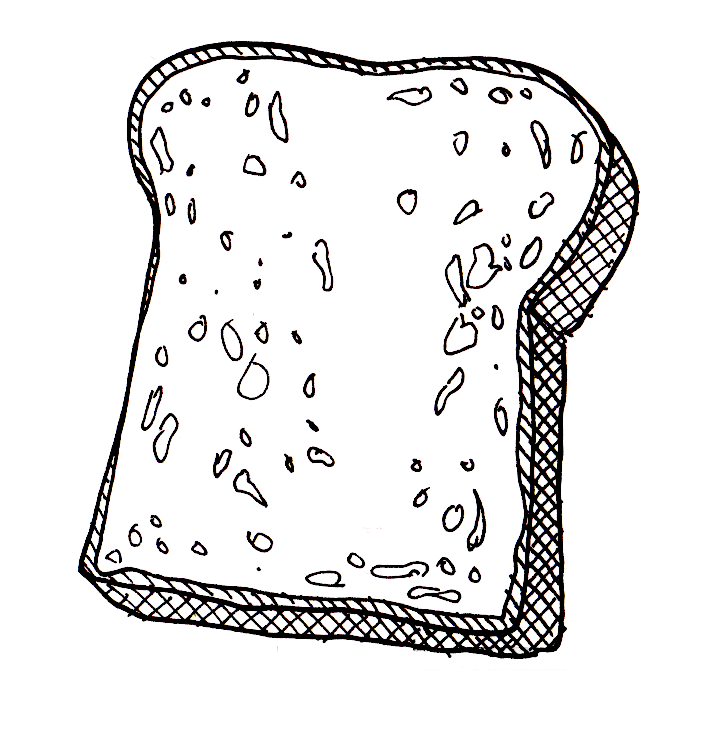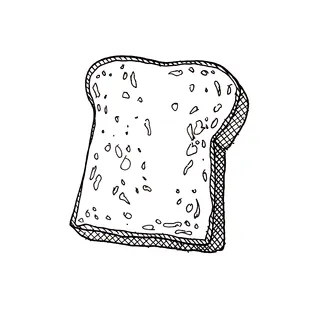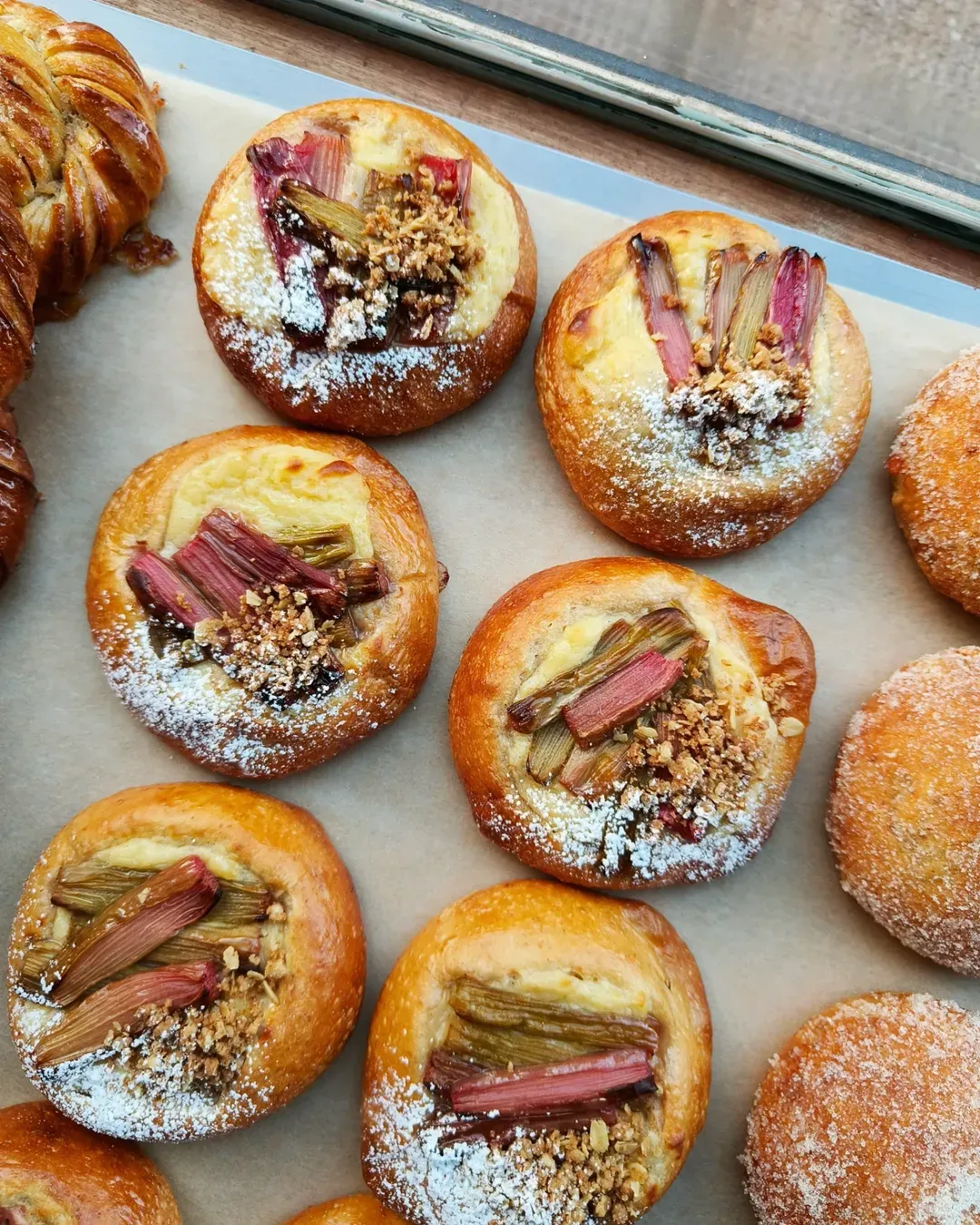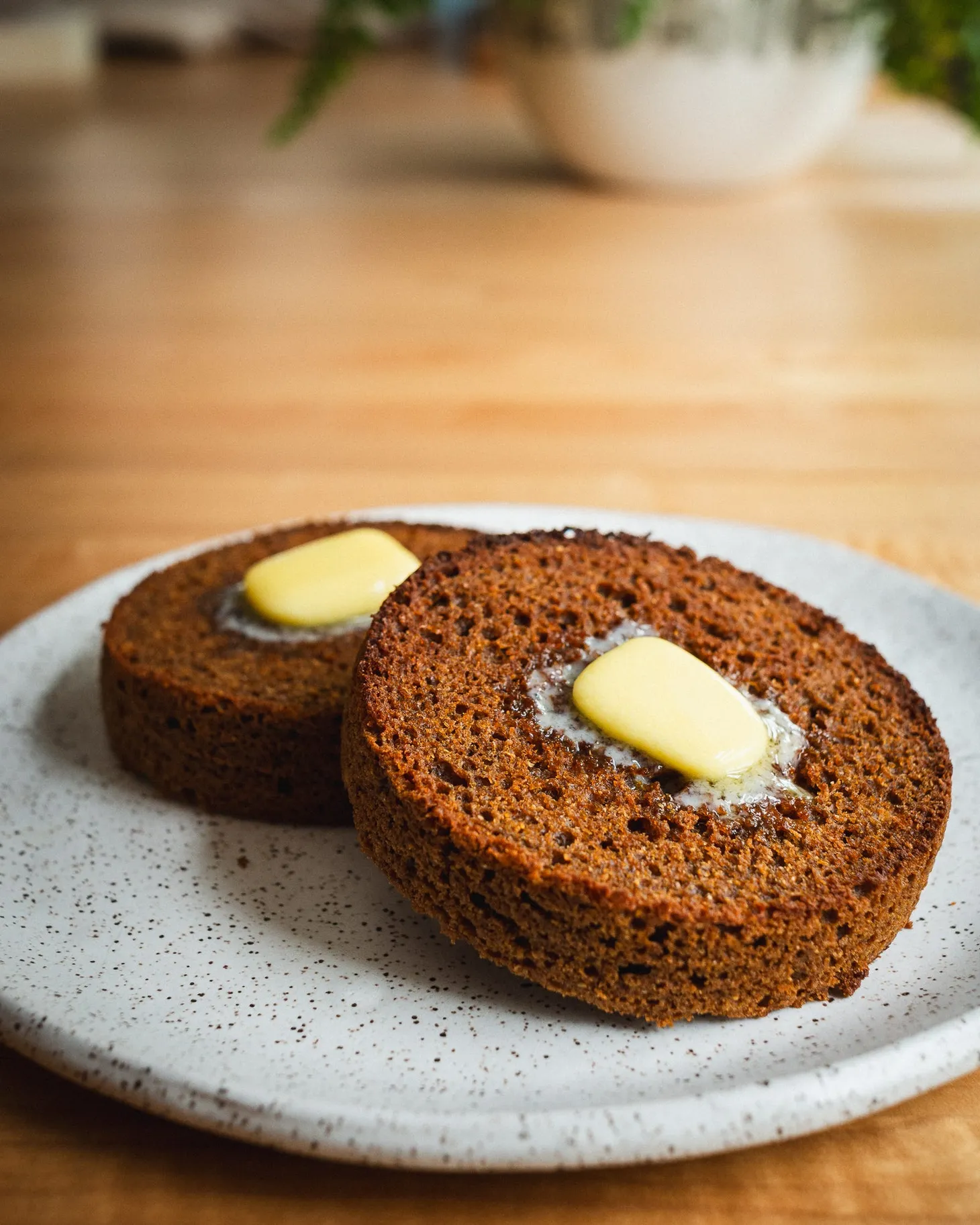An Interview with Jennifer Latham
Author of 'Baking Bread with Kids'
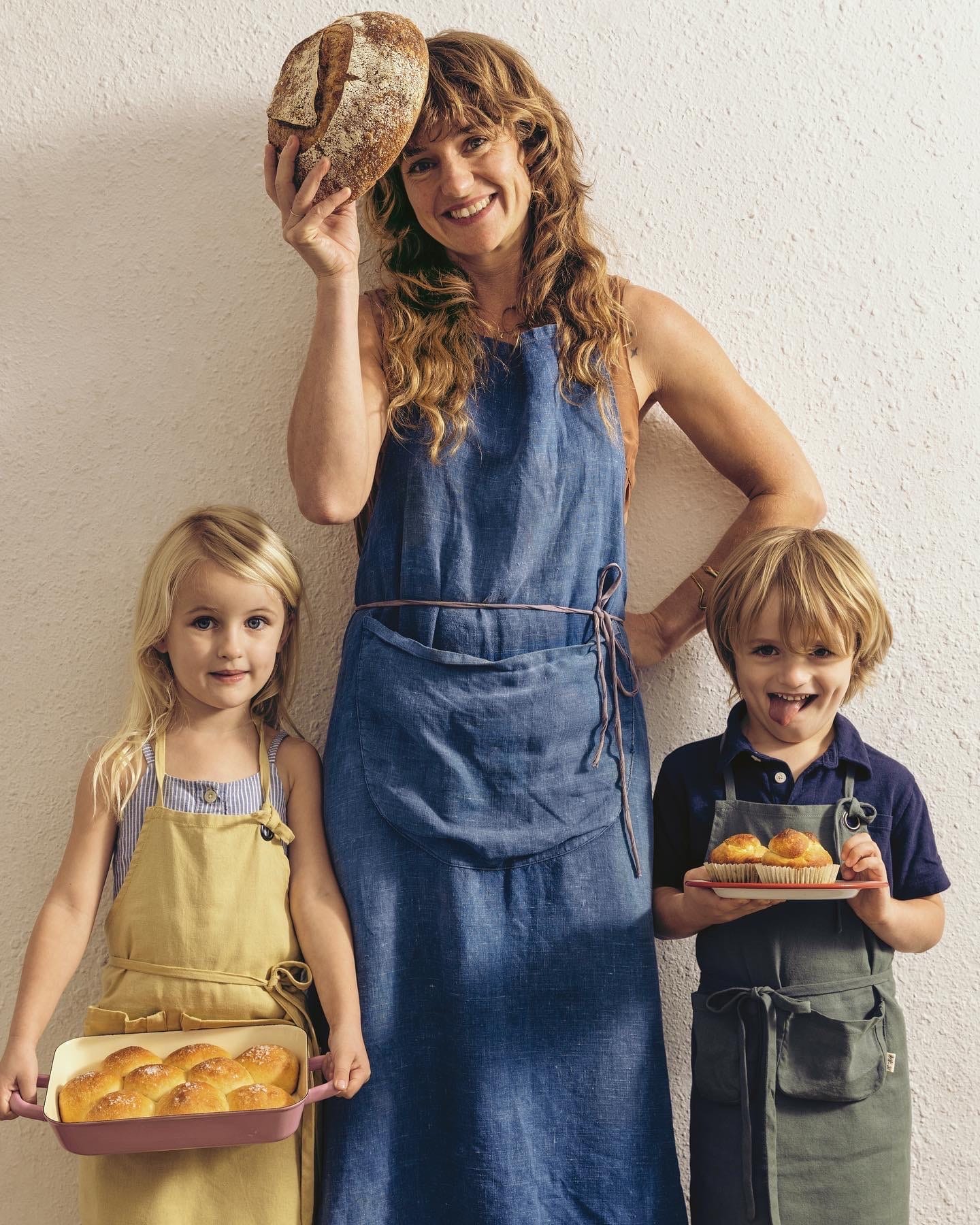
Table of Contents
Jennifer Latham, who helms the must-follow bread newsletter , is the former director of bread at Tartine, where she managed the bread-making teams in Northern and Southern California. She co-authored Bread Book with Tartine co-founder Chad Robertson, and most recently is the author of Baking Bread with Kids: Trusty Recipes for Magical Homemade Bread. As Jen describes below, the latter book came about as a direct result of COVID lockdowns, something that paralleled my own path to writing about bread, except in her case there were a pair of very cute kids involved. BBWK is a wonderful book for both kids and adults, and I was excited to chat with Jen about it. I hope you enjoy this interview (and the excerpt from the book that will arrive separately) as much as I did.
—Andrew
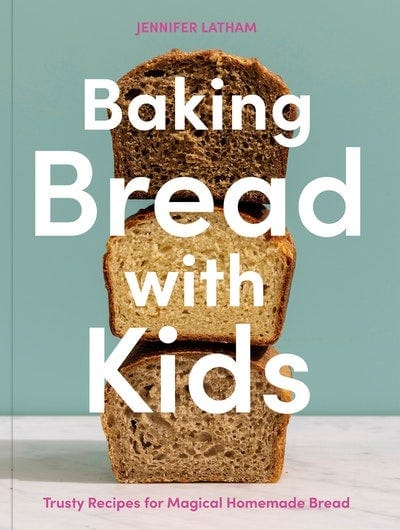
Andrew: Is Baking Bread with Kids something that came up because of your own at-home bread routine?
Jen: Yeah, definitely, it was a direct result of being home during COVID a bit more [in spring 2020]. At Tartine, we didn't stop—it's not like everybody was suddenly like working from home baking bread, we were still running the bakery. But childcare did stop. As the director of bread for SF and LA, I already had some flexibility with what location I was working at at the time. So I was able to put together this like—Alright, my mom's helping out a few days, [my husband] Jay has got some flexibility. So we said alright, “We’re just gonna figure this out and make this work.”
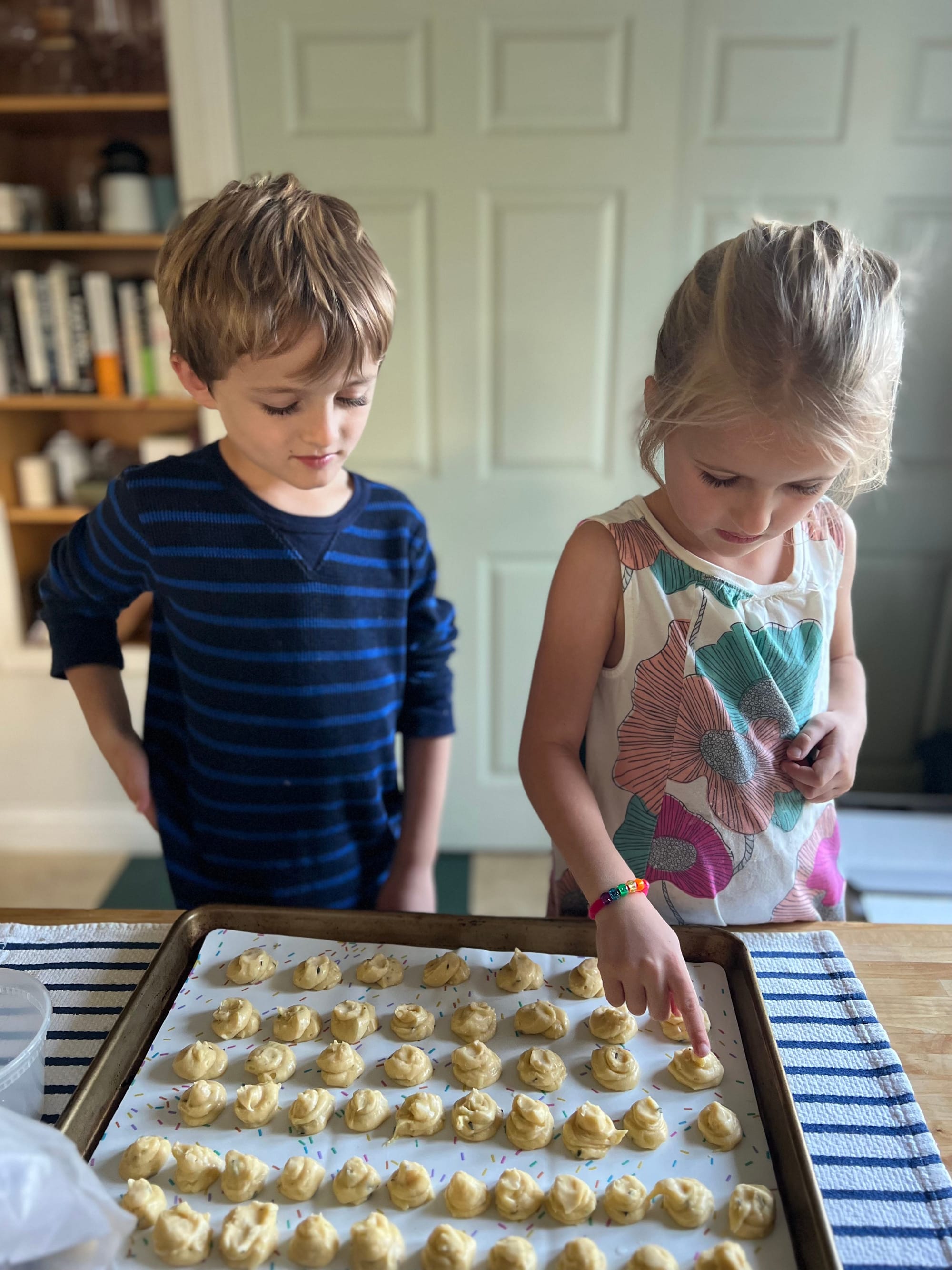
And Chad [Robertson] said, "You know, I have something you could do at home. Everybody's been asking us for starter because everybody all of a sudden wants to bake at home.” Chad has this belief that if you teach somebody to make a starter themselves, you're giving them tools that they can use to learn to manage fermentation in general. He said, “I'm happy to give people starter, but I feel like if you teach somebody how to start their own starter, you're giving them all this really valuable information about learning how to, like, smell for activity, and look for the bubbles and, gauge your fermentation, that's going to be really applicable for baking bread. So you should make a tutorial that we can put up on the Tartine Instagram for how to start your own starter from home.”
So I did that, and it was super popular. So then he said, “Okay, take them through all the rest of the steps, do some tutorials to show people how we make bread.” So I got to spend a few days going into the bakery and a few days at home making these videos, which were great. But the kids were home while I was doing it, and they were super interested in it. They hadn't quite turned four at the time. So it was it was really fun to get them involved in it, they'd just pop into some of the videos. And they were so into it.
[Alas, Video embeds don’t show up in Substack, so you can check out a few of these reels here, here, and here.]
So then I started thinking, “How can I keep drawing them into this and balance making really good bread that is delicious and healthy?” I didn't want to just do super-fast fermentation with tons of yeast and add lots of fat and sugar to make it easy. I wanted to take some of these principles of good bread, but also make things that they can understand, and that are in a little bit of a faster timeframe than the Tartine bread. You know, trying to bring together ease and simplicity and accessibility and still keep it good. I'm gonna make some really easy, easy bread that's fast and that they can grasp really well.
I started making a honey whole wheat bread, and I though, “Okay, I'm just gonna put yeast in it. I'm gonna make a straight dough.” And I didn't like the bread—It didn’t taste good, it didn’t feel good, it didn’t last long. So I started putting preferments in everything—it didn't necessarily have to be a sourdough preferment, with a lot of those recipes you can do sourdough or you can do a yeasted preferment. And honestly right away with even that step I was getting more flavor and a better texture just letting the grain work for itself instead of adding a bunch of extra things.
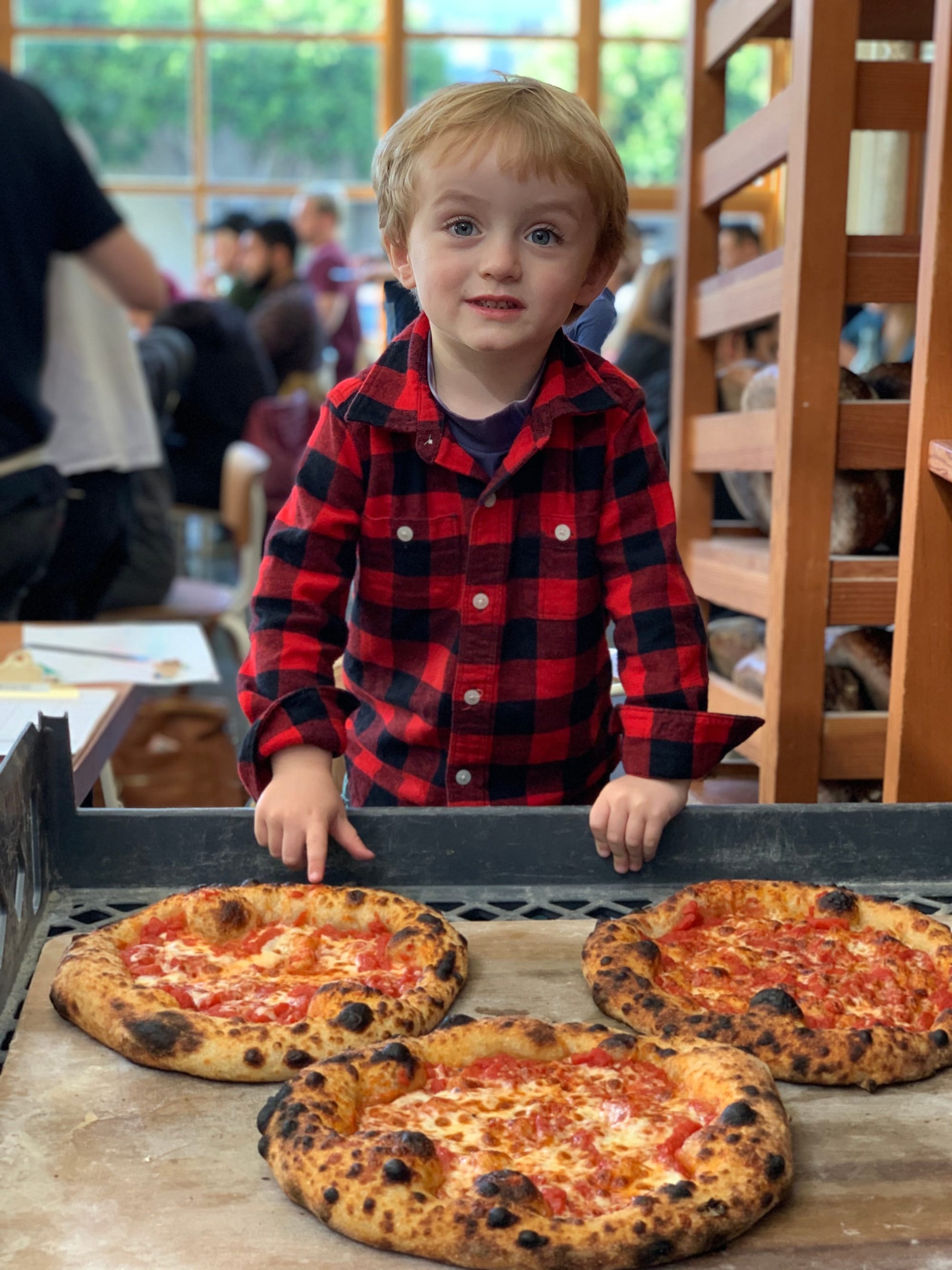
A lot of the recipes in the book are from even before COVID. The dinner roll recipe is something that the kids and I have been working on forever, playing with and tweaking. They love making those dinner rolls. That monkey bread recipe we love to make together. The tortillas are something we do all the time. We love making tortillas, pita, pizza—all those are things that are easy for kids to do. You know, playdough motions that they're already familiar with doing. A lot of those I had collected and then I made a few more once the book idea came up and I though “What else could we do here?” Focaccia wasn't something that we'd been making for a long time, but once I started making it we got really into doing foccacia pizza dinner nights.
Andrew: Was the book your idea, or [Bread Book publisher] Lorena [Jones]’s?
Jen: It was more Lorena's idea than anybody else’s. We had just come off making Bread Book, which was a super fun experience, and I developed a really good relationship with Lorena doing that. So when we finished that, she said, “Hey, I really want you to do your own thing. People are super into these tutorials that you did that your kids pop-up in, would you want to do a kid's bread book?” Like yeah, I would!
Andrew: How did you how did you go about structuring and creating the book? What is the difference between teaching kids directly versus teaching parents to teach their kids to bake?
Jen: My first question when I approached the book was, “What do I wish I had known when I started? Whatever age you are, whether you're seven or in your thirties, what are the things that I would want to know, before I started?” How does yeast work? What are the basics of grain?
The whole fundamentals section at the beginning of the book was all the things that I learned slowly myself over the years, whether through working at Tartine, or through reading other books. Before I started working at Tartine, I was already really into bread baking. I started off in high school with the Tassajara Bread book, and then moved into Peter Reinhart, and [Andrew Whitley’s] Bread Matters, those were all really seminal books for me. So a lot of those little things I learned through reading those books and then through working with Chad, I was like, I would like to put all this stuff in one place. I’d just come off writing Bread Book, and that was definitely geared towards people who are already pretty geeky and knowledgeable about bread. I wanted to take that framework that we used for Bread Book with all the fundamentals and some essay sections and whatnot, and just make it really distilled and really clear.
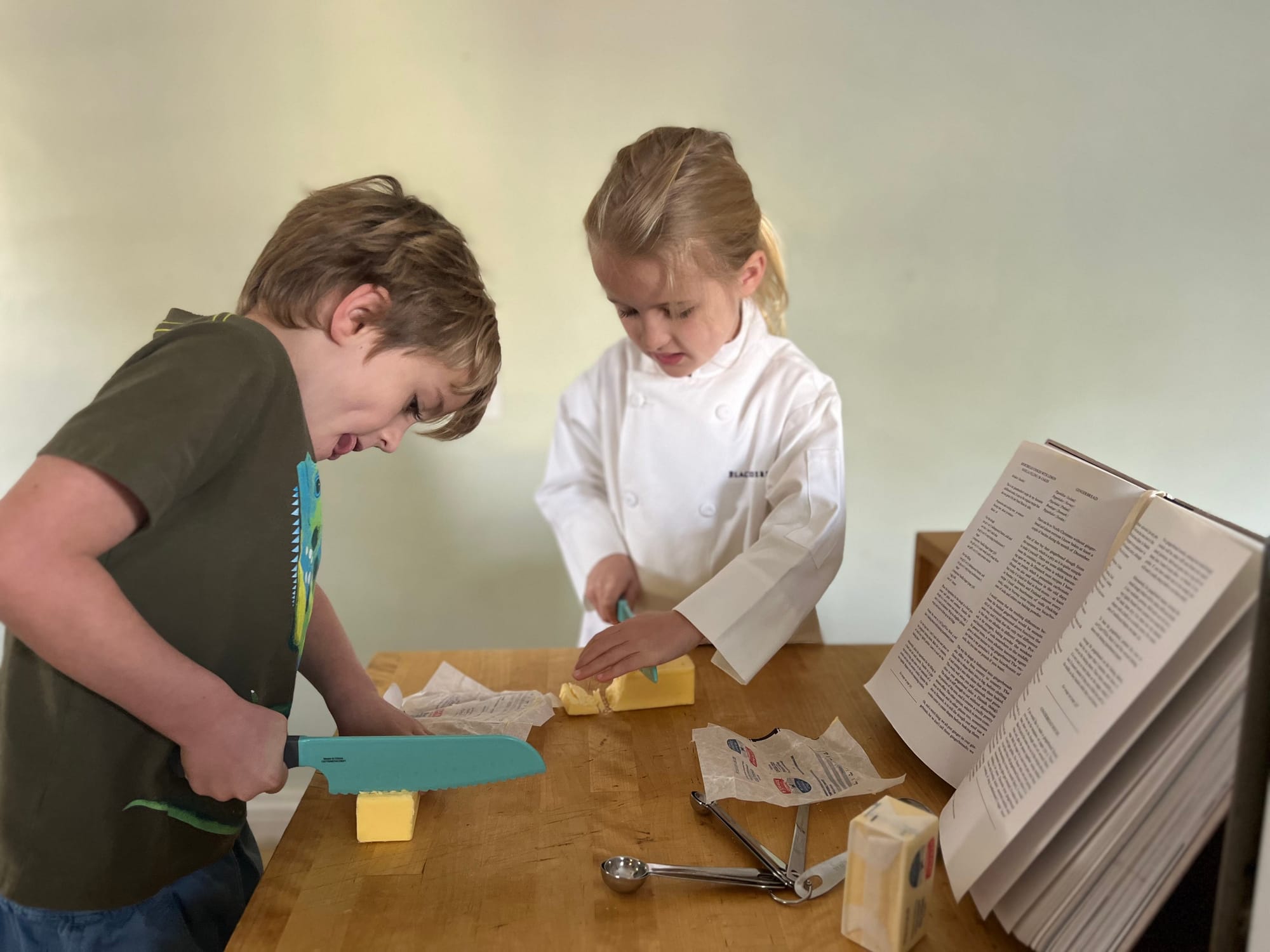
I talk in the book a little bit about how in college I taught chess to elementary school kids, and it was so amazing to see the capacity that even very young kids have to hold pretty sophisticated ideas, and be thinking ahead and be thinking of multiple things at once. When I first started writing the book, my editor [Emma Rudolph] said, ”I don't know if this is a book for kids, or if it's a book for grownups.” Eventually, we decided it would be a book for [grownups and kids] baking together. Obviously my six-year-old kids aren’t reading this book and learning the fundamentals, but I've had a lot of people who have baked from the book with their kids tell me, “You know, this is answering things I never knew: Why do I do things this way? Why do I make a preferment? Why am I adding these to liquid before adding the dries?”
In a way the book is kind of niche, because how many people are there who are baking bread with their kids. But also I feel like there are a lot of people out there who like baking together. It's almost a universal story: I remember baking with my mom, and people have memories of baking with their their grandmas.
Andrew: I guess the book is niche, but also if you already bake and you have kids or you eventually have kids, it's exactly the kind of thing you’d think, “I want to instill this thing that I love, I want to teach my kids that thing.” And so it's the perfect thing waiting for those people when they get to that point in their lives. And also there are people that don't know yet that they want to bake, but they have kids, and then they think that this is something new we can do together, learn together.
That’s one of the great things about bread is that there are so many little places along the way, once you kind of have the big picture, where you can tweak. And then also, one year I'll be doing something one way, and then all of a sudden next year, I'll be like, “Oh, maybe I'll change this a tiny bit.” That's been a great thing this year, shifting gears because it is different at home, so different. My mindset for so long was really locked into this particular situation [baking in a professional setting]. And it's been really fun to be like, “Okay, I'm gonna back up.”
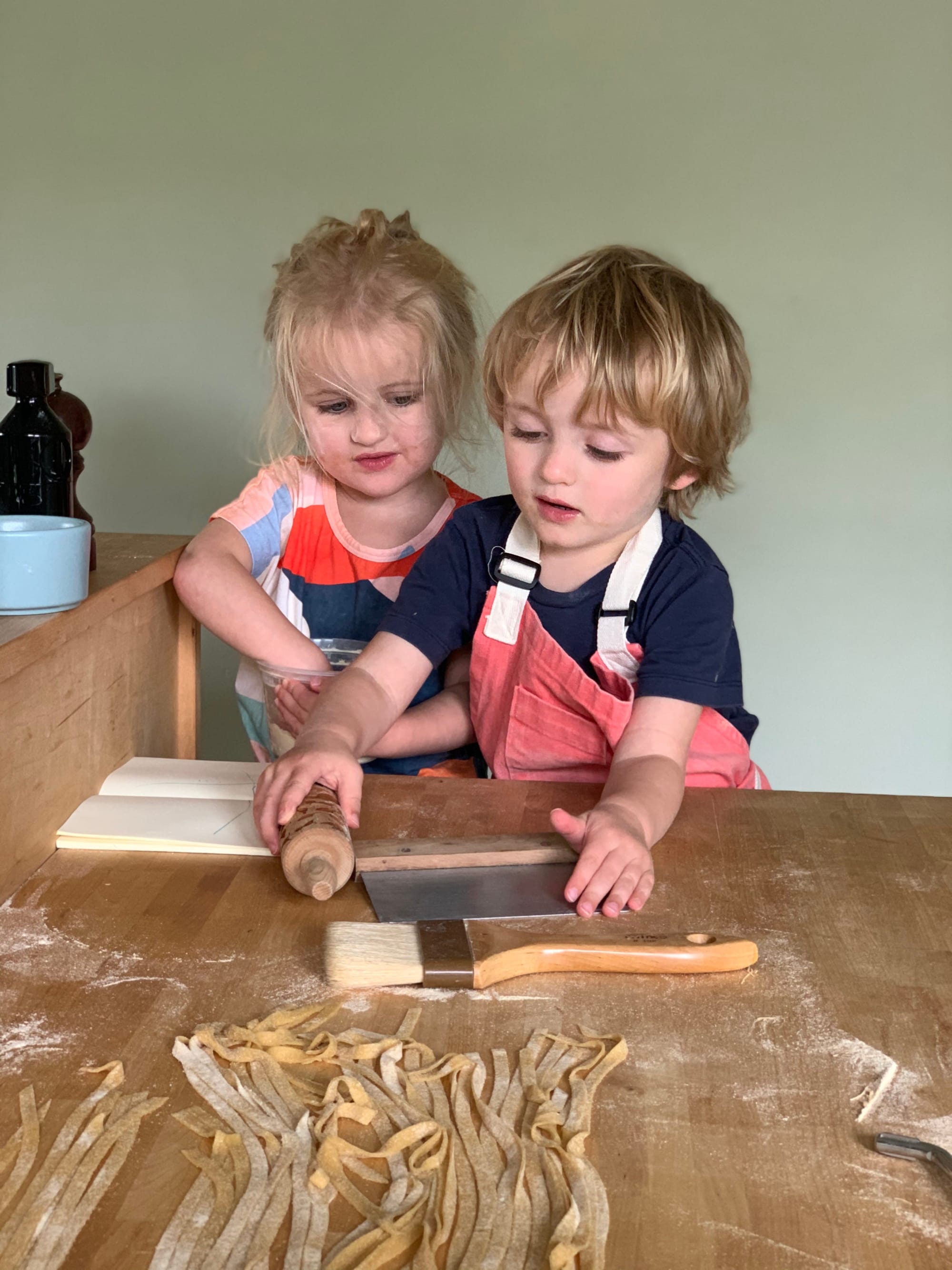
You know, even with the kids bread book, I go back and look at it. Obviously the hard thing about writing a book is that now it's out in the world, and it is what it is, and you can't go back and like change anything or edit it, you know what I mean? It's fixed. And I go back and think there are a few things that I wish I had maybe made a little easier in a couple of the recipes. But it is what it is. And I you know, I worked really hard on all those recipes and made a lot of good bread with them.
My biggest fear was that people would go try to make something and it wouldn't work, or it wouldn't turn out. But I think it is impossible to write a recipe that's gonna work for 100% of the people 100% of the time. I just have to remind myself: You do the best you can, and give a wide open book, with all the information you can give. And, you know, obviously be careful in your testing and careful in your thinking and, and then that's really all you can do. You can't be perfect. I think I think a lot of bakers have a perfectionist streak, and that can be a hard thing to navigate, you know?
As I'm working on my book, I think about that constantly. My recipes just refuse to sit still. I make the same bread all the time, but it's always different. It's not that it's necessarily better, but sometimes you feel like trying things a different way. It's fun to just mix it up. And and then eventually it changes and the bread is just as good as it ever was. You need a framework. And that can come from a lot of practice with a certain set of techniques. or it can come from a broad understanding of how different bakers do things. You should want to get yourself to a place where you can be flexible about it and just have fun. I'm trying to figure out how to teach that. It feels like an important thing to get across.
Yeah. I tried to do that in the kids book, in the fundamentals section where I talk about keeping expectations tempered. Bread is a journey. I think about this a lot. I surf, and I think about the parallels between surfing and bread baking. The learning curve is really slow. When you start off surfing, you have to build up physical strength in order to have a certain level of capability. With bread too, you need to have muscle memory for certain things. It takes years and years and 1000s and 1000s of loads to get that muscle memory. And it’s the same thing with surfing. I watch people who've even been surfing for a year or two, and they're sliding all over the place, and their balance isn’t there. It's just the slowest learning curve. And I think in order to embark on that learning curve, you have to sort of embrace the flatness of it to even get anything out of it. It's so easy for people to give up. Because it's like, “Oh, man, like, Am I ever gonna get good at this?” You know, and I think bread is the same way. I don't know if you can just like bake bread once or twice and nail it.
wordloaf Newsletter
Join the newsletter to receive the latest updates in your inbox.
